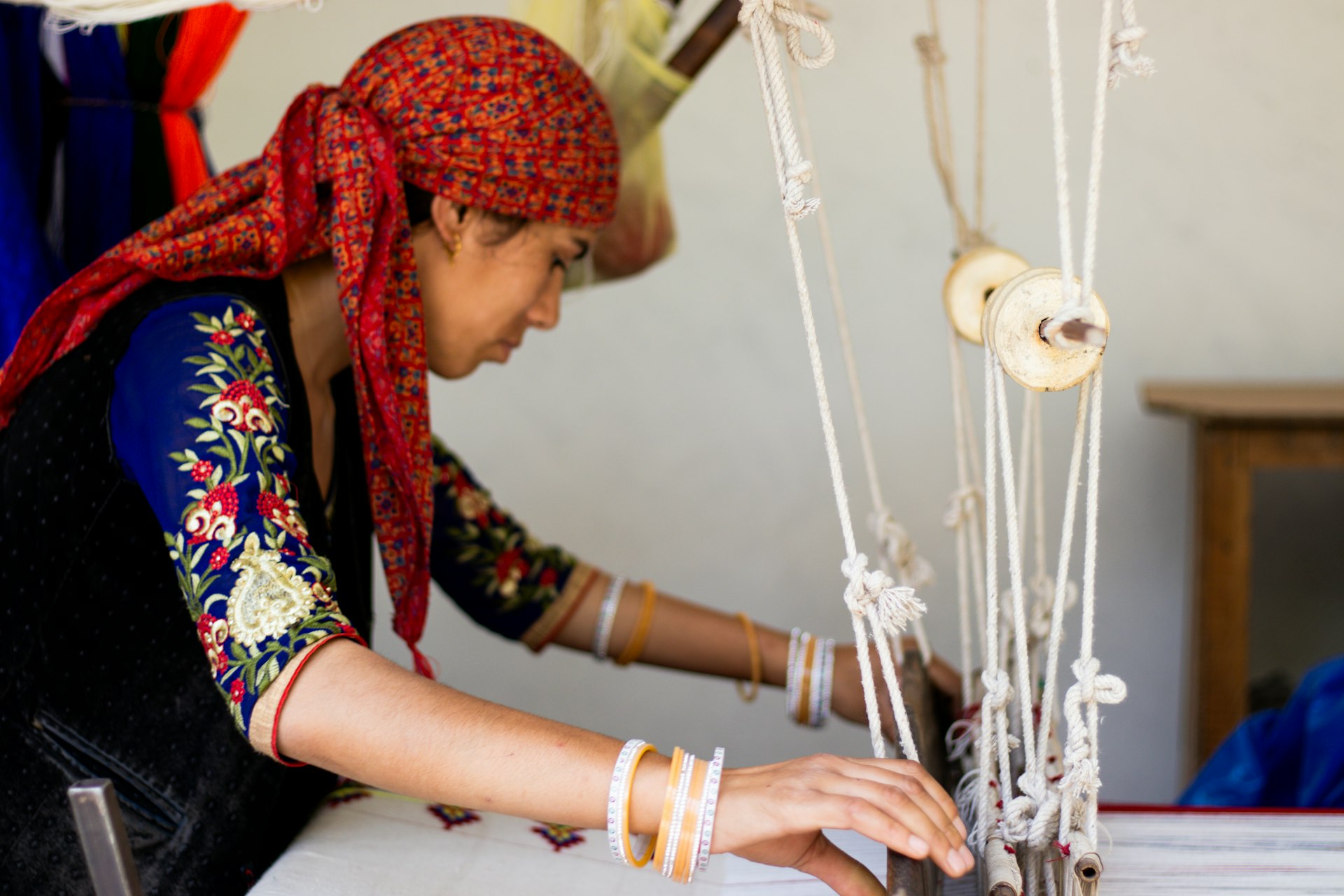Empowering Sustainability: The Role of Local Artisanship in Fashion Supply Chains


Photo by Akshat Jhingran on Unsplash
Introduction: Why Local Artisanship Matters in Sustainable Fashion
Local artisanship is increasingly recognized as a cornerstone of sustainable fashion supply chains. By leveraging centuries-old techniques, using eco-friendly materials, and producing in small batches, local artisans help transform an industry often criticized for its environmental and ethical shortcomings. Their work supports community economic growth, preserves cultural heritage, and reduces the fashion sector’s carbon footprint. This article explores the concrete benefits of local artisanship, actionable ways to access artisan-made products, and guidance for brands and consumers committed to ethical fashion.
Environmental Benefits: Reducing Waste and Carbon Emissions
One of the most significant contributions local artisans make to sustainable fashion is environmental stewardship. Artisan production typically utilizes local or regional materials , which minimizes transportation distances and the associated carbon emissions. This localized approach also enables simpler, more eco-friendly packaging, unlike the extensive packaging required for global shipping [4] .
Many artisans employ natural dyeing and traditional weaving techniques that minimize waste and use biodegradable inputs. For example, dyes derived from plants and minerals are less damaging to ecosystems than synthetic alternatives [1] . Small-scale production also means fewer unsold goods and less textile waste ending up in landfills [5] .
How to Access These Benefits: Look for brands that transparently source local materials, use natural dyes, and offer detailed information about their supply chains. Ask retailers about the origin of fabrics and manufacturing processes, and seek certifications or third-party verification where available.
Preserving Traditional Skills and Craftsmanship
Local artisanship is essential for preserving traditional skills that have often been lost in mass production. Techniques such as hand weaving, embroidery, and repair are passed down through generations and are typically more sustainable than industrial methods. For example, hand block printing with vegetable dyes is a hallmark of many artisan communities and consumes less water and chemicals than conventional printing [5] .
By supporting local artisans, consumers help to keep these valuable skills alive, promote cultural heritage, and encourage innovation through the blending of old and new methods. In many cases, artisan-made garments are designed to be more durable and repairable, extending their usable life and reducing the need for frequent replacement [1] .
Practical Steps to Engage: Attend local craft fairs, visit artisan cooperatives, or search online for verified platforms that connect consumers with skilled makers. Engage directly with artisans to learn about their techniques and request repairs or customizations to extend the life of your garments.
Strengthening Local Economies and Communities
When you purchase artisan-made fashion, you are investing in your community. Money spent on locally produced goods typically stays within the region, creating jobs and supporting local suppliers [3] . This stands in contrast to global supply chains, where profits often leave the community.
Local fashion brands and artisans are also better positioned to ensure fair labor practices and ethical working conditions. Because supply chains are shorter and more transparent, brands can closely monitor quality and worker welfare, promoting fair wages and respectful treatment [4] .
How to Support Local Economic Growth: Seek out regional fashion designers, artisan boutiques, and ethical brands committed to community investment. You can often find directories or listings through local chambers of commerce, industry associations, or sustainability-focused platforms. Ask questions about wage policies and labor conditions to ensure your purchases align with your values.
Quality and Exclusivity: The Value Proposition of Handmade Fashion
Artisan-crafted garments are typically made in small batches, with attention to detail and quality that mass production cannot match. These products are often exclusive, featuring authentic designs and innovative techniques that help them stand out in a marketplace dominated by fast fashion [2] . Materials used are frequently organic, recycled, or otherwise eco-friendly, further enhancing their sustainability profile [5] .

Photo by Allan Wadsworth on Unsplash
Accessing High-Quality Artisan Products: Look for brands and online platforms that specialize in handmade, limited-edition clothing. Ask about the materials and techniques used in production, and consider investing in pieces designed for longevity and easy repair. Many artisan brands will highlight the story behind each garment, giving you insight into the process and people involved.
Transparency and Ethical Supply Chains
Transparency is a hallmark of local artisanship. Consumers can often meet the makers, learn about the conditions under which their clothing was produced, and understand the full journey from raw material to finished product [1] . This personal connection builds trust and encourages informed, ethical purchasing decisions.
How to Ensure Supply Chain Transparency: Engage with brands that provide detailed information about their sourcing, labor practices, and production methods. Look for third-party certifications or public reporting, and request information directly when possible. Transparency is increasingly demanded by consumers, and reputable brands will be happy to share details.
Challenges and Solutions in Scaling Local Artisanship
Despite its many advantages, scaling local artisanship to meet broader market demand presents challenges. Material availability may be limited, and production capacity is often smaller than large factories. Artisans may face barriers in accessing international markets or competing with the low prices of fast fashion [4] .
Solutions include forming cooperatives to pool resources, leveraging online marketplaces to reach new customers, and educating consumers about the true cost of fast fashion. Brands can partner with local artisans to co-create collections, invest in training, and help artisans meet quality and consistency standards. Consumers can play a role by making informed choices and valuing craftsmanship over quantity.
Step-by-Step Guidance to Access and Support Local Artisanship
1. Research : Use verified sustainability directories, local business listings, and ethical fashion platforms to find artisans in your area. 2. Engage : Visit pop-up shops, markets, or online stores that showcase artisan products. 3. Ask Questions : Inquire about sourcing, materials, and labor practices. 4. Invest : Purchase high-quality, handmade garments designed to last. 5. Advocate : Share information about artisans and ethical brands with your network. 6. Repair : Extend the life of your clothing by using local repair services or learning basic repair skills.
Alternatives include supporting regional cooperatives, joining community-supported fashion initiatives, or participating in clothing swaps focused on artisan-made goods.
Key Takeaways and Future Directions
Local artisanship is a powerful driver of sustainability, ethics, and quality in fashion supply chains. By prioritizing local production, consumers and brands can reduce environmental impact, preserve traditional skills, strengthen economies, and ensure fair labor practices. Continued education, advocacy, and investment are needed to expand the reach and impact of artisan-made fashion. As demand for transparency and responsible consumption grows, local artisans will play a crucial role in shaping the future of fashion.
References
- [1] Sustainability Directory (2025). How Can Local Artisans Contribute to Sustainable Fashion?
- [2] Silai Studio (2024). Supporting Local Artisans: The Importance of Ethical Fashion Choices.
- [3] Ayerhs Magazine (2025). The Importance of Local Fashion Brands in Sustainable Fashion.
- [4] Dorsali (2025). How Local Sourcing Supports Ethical Fashion.
- [5] Label Saasha (2024). Social And Economic Benefits of Supporting Local Artisans and Handmade Cloth Industries.






